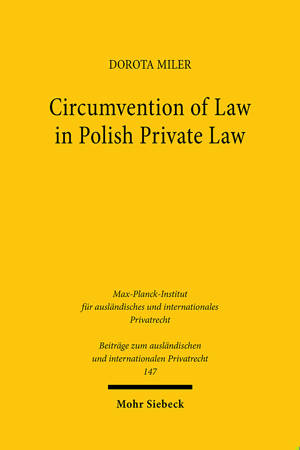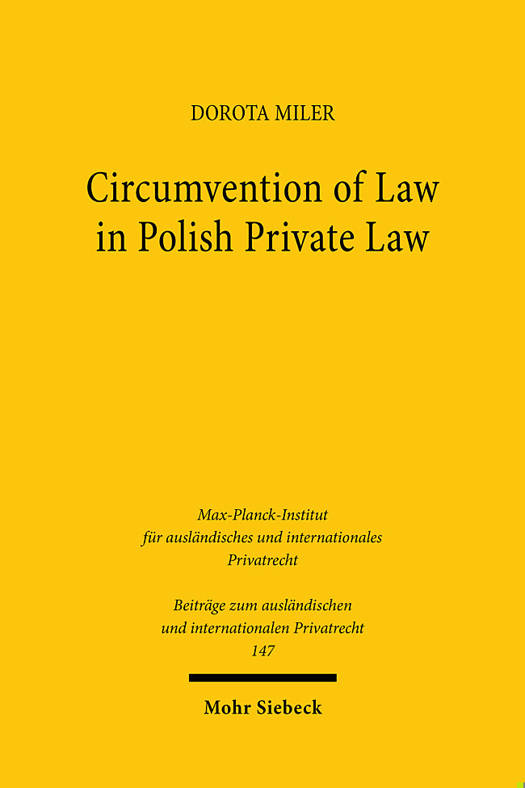
Bedankt voor het vertrouwen het afgelopen jaar! Om jou te bedanken bieden we GRATIS verzending (in België) aan op alles gedurende de hele maand januari.
- Afhalen na 1 uur in een winkel met voorraad
- In januari gratis thuislevering in België
- Ruim aanbod met 7 miljoen producten
Bedankt voor het vertrouwen het afgelopen jaar! Om jou te bedanken bieden we GRATIS verzending (in België) aan op alles gedurende de hele maand januari.
- Afhalen na 1 uur in een winkel met voorraad
- In januari gratis thuislevering in België
- Ruim aanbod met 7 miljoen producten
Zoeken
Circumvention of Law in Polish Private Law
A Comparative Analysis from Polish, German and European Perspectives
Dorota Miler
€ 140,95
+ 281 punten
Omschrijving
Circumvention of law is inherent to all legal systems. It is possible - by undertaking certain transactions - to exclude the application of statutory provisions that prevent the accomplishment of certain results and, to instead, take advantage of provisions that allow the achievement of these results. What differs between legal systems is the significance that each legal system attaches to the concept of circumvention of law. Dorota Miler answers the question of whether there is a theoretical and practical justification for distinguishing circumvention of law from other causes of defects in legal transactions and its explicit legal regulation based on the comparison of Polish, German and European law, jurisprudence, and legal literature. The author concludes that circumvention of law is an independent legal institution in Polish private law.
Specificaties
Betrokkenen
- Auteur(s):
- Uitgeverij:
Inhoud
- Aantal bladzijden:
- 600
- Taal:
- Engels
- Reeks:
Eigenschappen
- Productcode (EAN):
- 9783161644092
- Verschijningsdatum:
- 30/09/2025
- Uitvoering:
- Hardcover
- Formaat:
- Genaaid
- Afmetingen:
- 155 mm x 231 mm
- Gewicht:
- 127 g

Alleen bij Standaard Boekhandel
+ 281 punten op je klantenkaart van Standaard Boekhandel
Beoordelingen
We publiceren alleen reviews die voldoen aan de voorwaarden voor reviews. Bekijk onze voorwaarden voor reviews.









